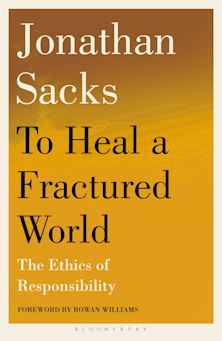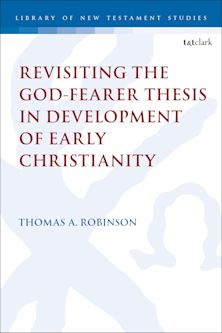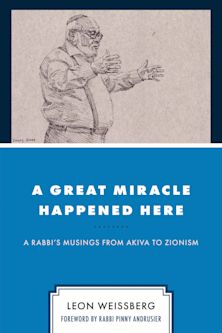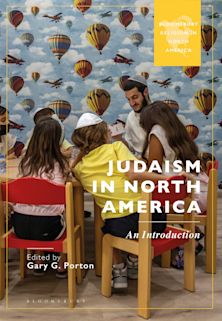- Home
- ACADEMIC
- Religious Studies
- Judaism
- The Boundaries of Judaism
The Boundaries of Judaism
This product is usually dispatched within 2-4 weeks
- Delivery and returns info
-
Flat rate of $10.00 for shipping anywhere in Australia
You must sign in to add this item to your wishlist. Please sign in or create an account
Description
Table of Contents
Chapter 1: Pluralism, Tolerance and Deviance
Chapter 2: Deviance, Boundaries and Marginalization in Rabbinic Literature
Chapter 3: Intolerable Deviance and its Forms of Marginalization in Medieval Halakhic Writing
Chapter 4: Deviance, Boundaries and Marginalization in the Responsa of the Hatam Sofer
Chapter 5: Deviance, Boundaries and Marginalization in the Responsa of Moshe Feinstein
Chapter 6: Towards a Modern Theory of Boundaries
Product details
| Published | 27 Sep 2007 |
|---|---|
| Format | Paperback |
| Edition | 1st |
| Extent | 204 |
| ISBN | 9780826496645 |
| Imprint | Continuum |
| Dimensions | 234 x 156 mm |
| Series | The Robert and Arlene Kogod Library of Judaic Studies |
| Publisher | Bloomsbury Publishing |
About the contributors
Reviews
-
'With great learning and high intelligence, Donniel Hartman wrestles with the hardest questions about Jewish identity: Whose identity is this? Who is a Jew? He gives us the most inclusive and generous answers that a boldly reconceived Orthodox tradition allows. And for that, all of us who are included (but might not have been) will be grateful.' Michael Walzer, Professor at the Institute for Advanced Study, Princeton, New Jersey, USA
-
'The Boundaries of Judaism is a brilliant book, rich in scholarly erudition and contemporary insight. Hartman provides a sophisticated presentation and analysis of classical and modern rabbinic texts on identity and status, and employs contemporary sociological theory as well as philosophical and theological understandings to confront and illuminate the issues regarding contemporary Jewish peoplehood that these texts address. No discussion of the contemporary state of Jewish unity and community can afford to ignore this book. It will be a treasure for scholars, Jewish professionals and laypeople alike that should inform and enrich present-day Jewish communal dialogue.' Professor David Ellenson, President, Hebrew Union College-Jewish Institute of Religion



































